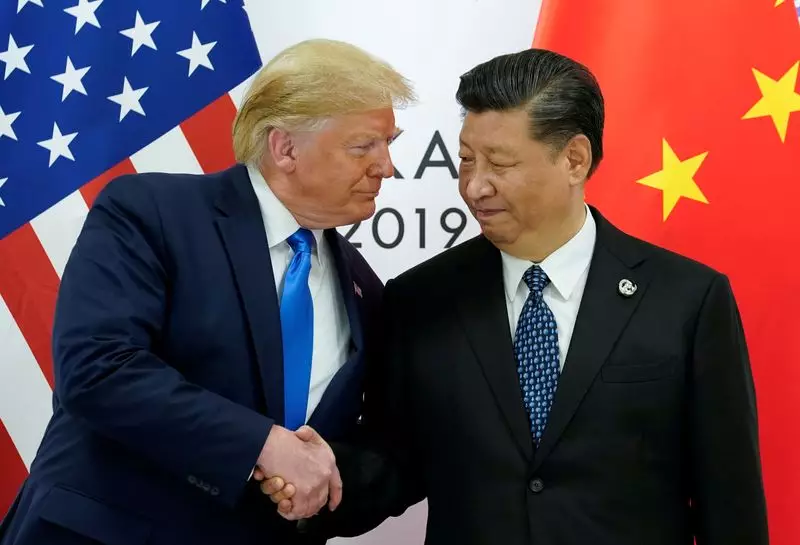The geopolitical landscape is continuously evolving, and the recent electoral triumph of Donald Trump in the United States signifies a potential shift in Sino-American relations. This change could reintroduce tensions reminiscent of the trade wars initiated during Trump’s previous presidency. The stakes are undoubtedly high; both nations find themselves at a crossroads, with economic policies and diplomatic strategies needing critical reassessment to avert further discord.
In his recent communication, Chinese President Xi Jinping underscored the importance of stable and sustainable relations between the two countries. This acknowledgment reflects a mutual understanding that both powers must adopt a more amicable and cooperative approach in order to navigate the complexities of the post-pandemic world. Xi’s remarks are not merely a call for peace; they signify a desire for an alignment of strategies aimed at fostering long-term economic partnerships between the U.S. and China.
Trump’s return to power raises immediate concerns regarding his aggressive trade policies. His previous administration’s imposition of tariffs was a significant factor that strained bilateral trade relations. Notably, the potential for new tariffs reaching as high as 60% poses grave implications for the Chinese economy, which is already grappling with a myriad of challenges. These include a severe downturn in the property sector, escalating local government debts, and tepid domestic consumer demand.
The reintroduction of punitive tariffs could destabilize not only the Chinese economy but also the global economic landscape. The U.S. Department of Commerce confirmed that they would continue to impose tariffs on various Chinese imports, targeting strategic industries aimed at shielding domestic markets. This protectionist approach is painted as a shield for American interests but comes with the risk of igniting a full-fledged trade conflict that could reverberate worldwide.
Given the backdrop of increasing tensions, the importance of dialogue between the two nations cannot be overstated. Xi championed the need for enhanced communication to effectively manage differences. Both leaders will need to navigate not just through economic disputes but also critical geopolitical issues—a task that requires robust forums for discourse.
Dialogue is essential for unraveling the misunderstandings and misconceptions that have hampered progress in the past. A pragmatic approach, as suggested by state-run publications, could serve as a guiding principle for mapping out a more constructive relationship. By engaging in comprehensive dialogues that aim to bridge gaps in perceptions, both nations can work towards establishing a framework conducive to mutual respect and cooperation.
The editorial sentiment in Chinese media portrays Trump’s second term as a potential opportunity for recalibrating Sino-American relations. There is a prevailing hope that this new era could mark a turning point if both nations seize the opportunity for synergy rather than confrontation. However, the road ahead is fraught with uncertainties.
The intricacies of the U.S.-China relationship are profoundly layered, encompassing not only trade but also critical areas such as technology, security, and international diplomacy. The lessons learned from the previous term’s trade wars will be invaluable. Constructing policies that foster cooperation while addressing valid trade grievances will be key to ensuring that both countries can coexist without overriding each other’s interests.
The electoral victory of Donald Trump signals a potentially tumultuous period ahead for Sino-American relations. The imperative for both countries to restore stability through diplomatic engagements and sound economic policies cannot be understated. As President Xi has effectively articulated, the world will be watching closely to see if these two global powers can respect each other’s sovereignty while promoting co-existence and collaboration. The future hinges on whether both nations can transcend past grievances and embrace a pragmatic approach to nurturing their bilateral relationship amidst a complex geopolitical backdrop.

